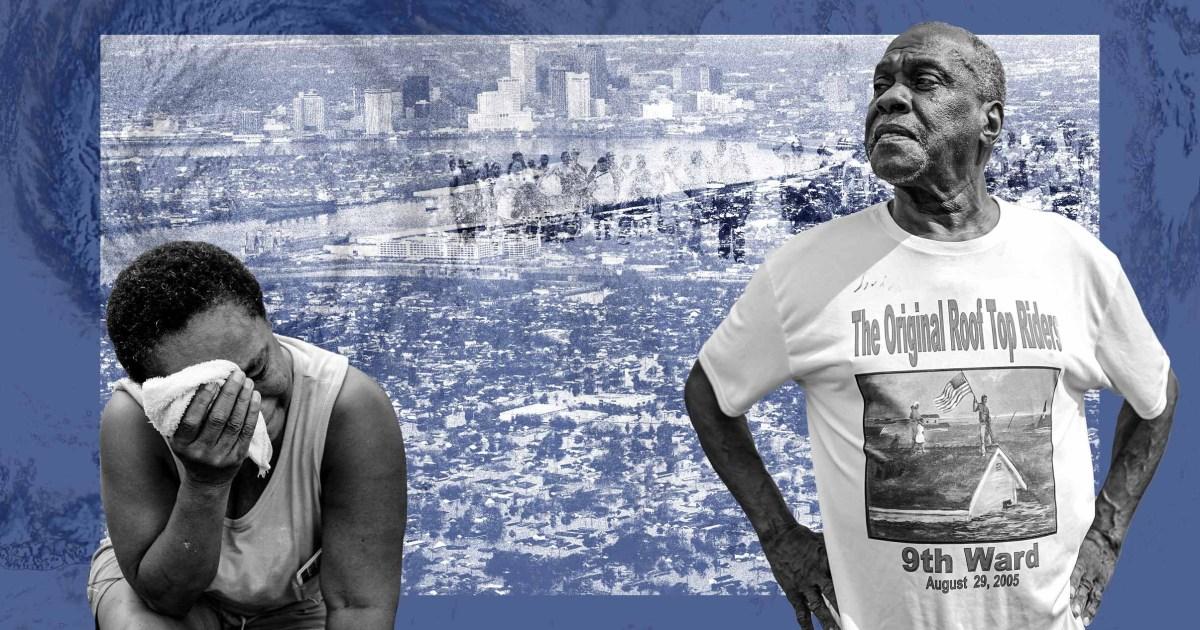URGENT UPDATE: As the 20th anniversary of Hurricane Katrina approaches, survivors in New Orleans are speaking out against the distorted narratives surrounding the catastrophe. Hours before dawn on August 29, 2005, levees began to crack, unleashing devastating floods that would claim over 1,800 lives and cause $92 billion in damages.
Residents like Lucrece Phillips, who narrowly escaped the floodwaters, recall the chaos: “I thought everyone was dead,” she stated. As the storm ravaged the city, many were left stranded, clinging to rooftops or trees, while the world watched distressing images of despair unfold on their screens.
Survivors argue that the media narrative painted a skewed picture of the aftermath. “The news coverage made it seem like people were in an ‘animalistic’ state,” said Tracy Curry, director of the documentary “Hurricane Katrina: Race Against Time.” “That simply wasn’t true.”
In the wake of the storm, the portrayal of residents looting stores for survival supplies was prevalent, but locals insist they were merely seeking essential resources. Lynette Boutte, a lifelong New Orleans resident, emphasized, “They were looking for survival equipment, not looting. If the tables were turned, it would be a different story.”
Two decades later, the remnants of the disaster linger. Neighborhoods once filled with children and music now echo with silence. “There are no more children here,” Boutte lamented, highlighting the loss of community and culture. The survivors’ struggle is compounded by skyrocketing property values, as developers have transformed the landscape, making it impossible for many to return.
The real tragedy? The levees did not fail solely due to the storm but because of crumbling infrastructure. Engineering failures led to their collapse, with aid delayed due to unfounded fears of looting. Survivors faced days without food or water as the government hesitated to respond.
“This is like Manhattan,” Boutte explained, referring to the soaring housing prices now putting homeownership out of reach. “The average house, which once sold for $25,000 to $50,000, now goes for upwards of $400,000.”
As Hurricane Katrina’s legacy continues to unfold, survivors express deep fears about the state of the nation’s infrastructure. Lucrece Phillips pointed to recent devastation in North Carolina during Hurricane Helene, drawing parallels to the chaos of 2005. “We need to learn that people’s lives matter,” she stated, calling for compassion and action.
In the face of ongoing challenges, the spirit of New Orleans remains resilient. Local communities are working to preserve their culture and heritage, teaching the next generation about their roots through music and storytelling.
However, the emotional scars remain. “There are times when you dream about it, and there are times when you have nightmares about it,” Phillips shared, reflecting on the lasting impact of the storm.
As the anniversary approaches, survivors urge the nation to recognize the truth about Hurricane Katrina and address the systemic issues that continue to put communities at risk. “Mother Nature is taking her trip around the United States,” Boutte warned. “When you have poor infrastructure and inadequate responses, you’re going to have death and destruction, no matter where you live.”
With the pain of the past still fresh, the survivors of Hurricane Katrina are not just remembering but demanding change as they navigate a future that remains uncertain.
